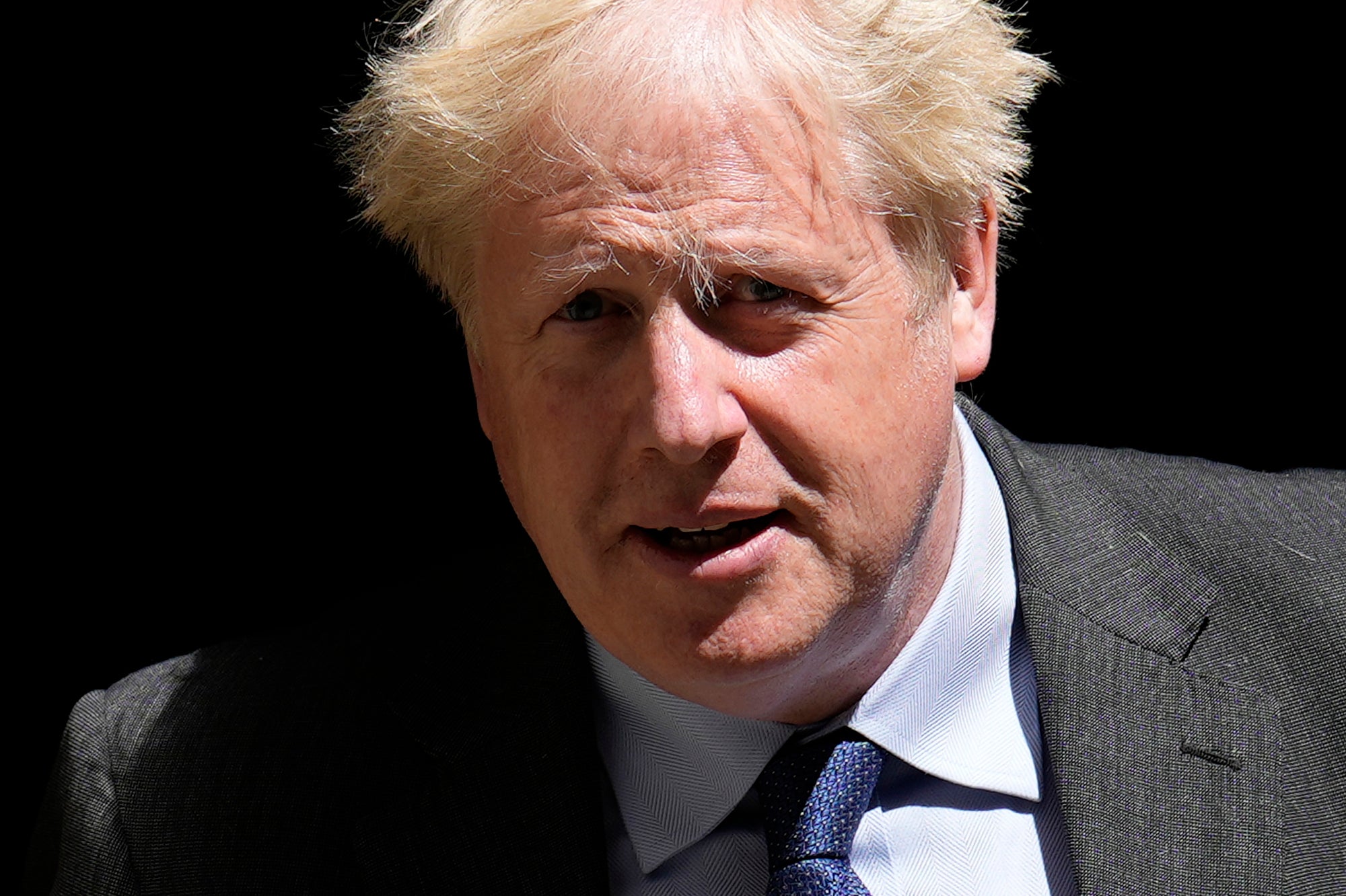The Tories are at risk of losing more than both by-elections
For the Conservative Party to lose one by-election would be unfortunate – to lose two would be a sign it is at risk of foregoing its electoral footing, writes Professor John Curtice


Boris Johnson has survived the verdict of his own MPs – for the time being at least. But on Thursday he faces the judgement of the electorate in two key parliamentary by-elections at opposite ends of England, in Wakefield and Tiverton and Honiton.
The verdict from the ballot boxes may not be so kind for the prime minister. Certainly, his party faces a severe challenge in retaining the Wakefield seat. One of the so-called “red wall” seats that the Conservatives gained in 2019 – after not having been victorious locally since 1931 – the party is defending a relatively small seven-and-a-half point majority.
A swing of a little less than 4 per cent from Conservative to Labour would be sufficient for Sir Keir Starmer to reclaim the seat and register his party’s first by-election gain under his leadership.
Labour ought to have little difficulty in surmounting this hurdle. At the moment, the national polls are registering as much as a nine-point swing since the last general election – and by-elections in the middle of a parliament often record markedly bigger swings to the opposition than those in the current national polls, as some voters use the by-election to express a mid-term protest.
True, the Brexit party won six per cent of the vote locally in 2019, votes that the Conservatives might now hope to pick up, but even if they do – and there are plenty of other Eurosceptic options available to voters on the Wakefield ballot paper – this is unlikely to be sufficient to stem the outgoing Tory tide.
Indeed, there are signs that Labour might well win the seat quite comfortably. Voters in the constituency went to the polls just last month in order to vote for their local councilors – and across the constituency Labour were ahead of the Conservatives by 51 per cent to 34 per cent.
Meanwhile two polls conducted early on in the campaign (albeit with limited sample sizes) put Labour at 20 and 23 points ahead. Indeed, a 20 point lead would represent a swing of nearly 14 points, higher than the party has achieved at any by-election since the party lost power at Westminster in 2010.
In truth, this is probably the kind of result that the party needs to achieve if it is to suggest that it might be capable of posing a bigger threat to the Conservatives than it did at the last three general elections.
The other by-election, in Tiverton and Honiton, is very different in character. This is what would usually be regarded as a safe Conservative seat. The party won 60 per cent of the vote in 2019, enough to put it 20 points ahead of Labour, and 25 points of the Liberal Democrats. Only once – in a 1920s by-election – has the area ever elected anything other than a Conservative MP.
Yet, despite starting in third place, the Liberal Democrats are pouring their activists into the constituency. The party hopes to repeat its success last December when, although starting in third place, it took North Shropshire from the Conservatives on a 34-point swing – well above the 23-point swing it now needs in Tiverton and Honiton.
Meanwhile, despite their current third place, the Liberal Democrats have performed strongly in the constituency in the past, most notably almost winning the seat at the 1997 general election. In short, there is a past local tradition of voting Liberal Democrat that the party might hope to revive on Thursday.
Success for the Liberal Democrats is by no means guaranteed. The party is still no stronger in the national polls than it was at the last general election – so it is wholly reliant on the momentum that it can generate locally. Success will depend not only its ability to garner the support of dissatisfied Conservatives but also the tactical support of those who would otherwise vote Labour.
Whether or not Labour’s vote collapses to the benefit of the Liberal Democrats, as it did both in North Shropshire and in the Liberal Democrats’ other by-election success a year ago in Chesham and Amersham, could well be crucial to the outcome.
Indeed, what Labour supporters decide to do in Tiverton and Honiton (and the already small body of Liberal Democrat supporters in Wakefield) could well be the most important feature of Thursday’s two results. In 2019, there was relatively little evidence of anti-Conservative tactical switching (in either direction) among Labour and the Liberal Democrat supporters.
To keep up to speed with all the latest opinions and comment sign up to our free weekly Voices Dispatches newsletter by clicking here
Many Labour supporters had seemingly not forgiven the Liberal Democrats for their involvement in the 2010-15 Tory-led coalition, while many Liberal Democrats regarded backing Labour as a leftward step too far. However, there were signs in last month’s local elections that those days may be over, with both Labour and the Liberal Democrats advancing most strongly in Tory-held wards where they were starting off in second place.
Such a pattern implies that the Conservatives may now not only face the challenge of how to recover the support lost in the wake of Partygate and the cost of living crisis, but also that of overcoming an increased antipathy to Boris Johnson and his government, an antipathy that threatens the party with the prospect of having to fight the next election on two fronts as opposition supporters use whatever stick – be it Labour or the Liberal Democrats – seems the most effective way of beating the Conservatives locally.
As Lady Bracknell might observe, for the Conservatives to lose one by-election on Thursday might be regarded as unfortunate. However, to lose two might look like much more than carelessness – but a sign of a government that is at risk of losing its electoral footing.
John Curtice is professor of politics, Strathclyde University, and senior research fellow at NatCen Social Research and The UK in a Changing Europe
Join our commenting forum
Join thought-provoking conversations, follow other Independent readers and see their replies
Comments


Bookmark popover
Removed from bookmarks